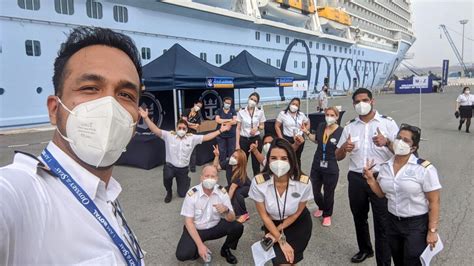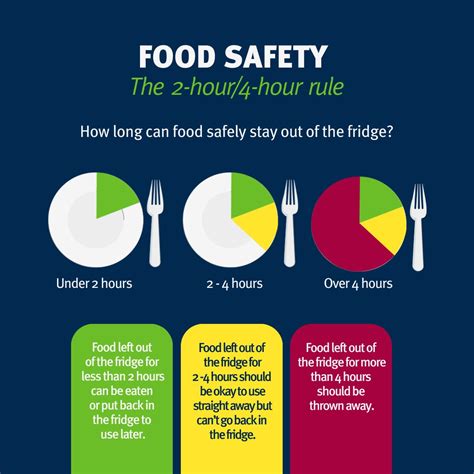
Royal Caribbean crew member salaries are a subject of much interest, and recent revelations provide a glimpse into the earnings of these essential workers, highlighting the complexities of their compensation structures, which can vary significantly based on position, experience, and tips.
A Royal Caribbean crew member has offered a detailed look into their paycheck, revealing the financial realities of working at sea. The disclosure provides valuable insight into the earnings and compensation structures for individuals employed on cruise ships, challenging common perceptions about these jobs. While the allure of traveling the world while earning a living is attractive, the specific income figures and working conditions are crucial for understanding the full scope of these employment opportunities.
Transparency at Sea: Unveiling Crew Compensation
A TikTok video posted by a Royal Caribbean crew member, identified as @CallieOnTheSea, showcased a recent bi-weekly paycheck, offering a rare peek into the financial compensation received by these employees. The video detailed a net pay of $1,877.75 for two weeks of work.
“I’m a crew member on Royal Caribbean, of course, I’m going to show you my paycheck,” she said in the video. She further elaborated that her base salary is $900 every two weeks, but due to her role, she earns commission, significantly boosting her earnings.
“I’m very lucky, I make commission, so my paychecks are a little bit higher than that,” she stated.
Factors Influencing Crew Pay
The disclosure highlights that crew member pay is not uniform and is affected by multiple factors, with commission playing a crucial role in determining overall earnings. Several elements influence how much a crew member can earn:
-
Position: Different roles command varying base salaries. High-demand or specialized positions, such as those requiring specific certifications or skills, generally attract higher pay. Roles in entertainment, culinary arts, and guest services often have different base rates reflecting their responsibilities and qualifications.
-
Experience: As with many industries, experience is a key determinant of pay. Crew members with longer tenures and proven track records often receive higher compensation. Loyalty and consistent performance can also lead to promotions and corresponding salary increases.
-
Tips: Many crew positions rely heavily on tips as a significant portion of their income. Bartenders, servers, and housekeeping staff often receive gratuities from passengers, which can substantially increase their earnings. The amount of tips can vary based on the cruise itinerary, passenger demographics, and the crew member’s service quality.
-
Commission: As illustrated by @CallieOnTheSea’s experience, commission-based roles can significantly boost earnings. Positions in sales, photography, and certain guest services may offer commission structures that incentivize performance and revenue generation.
-
Bonuses: Performance-based bonuses are another potential source of additional income. These bonuses can be tied to factors such as customer satisfaction scores, sales targets, or operational efficiency.
-
Overtime: Some crew members may be eligible for overtime pay, depending on their role and the company’s policies. Overtime can result from working extended hours or covering additional shifts during peak periods.
Beyond the Paycheck: Benefits and Considerations
While the paycheck provides a snapshot of earnings, it is essential to consider the additional benefits and unique aspects of working on a cruise ship.
-
Room and Board: One of the significant advantages of cruise ship employment is that the company typically provides room and board, eliminating the need for employees to pay for housing and meals. This can lead to substantial savings, allowing crew members to allocate more of their earnings towards personal expenses or savings goals.
-
Travel Opportunities: Working on a cruise ship offers unparalleled opportunities to travel the world. Crew members visit diverse destinations and experience different cultures, which can be a significant perk for those with a passion for exploration.
-
Living Conditions: Living conditions on a cruise ship can vary. Crew members often share cabins with one or more roommates, and personal space can be limited. However, cruise lines are increasingly investing in improving crew accommodations to enhance their comfort and well-being.
-
Work-Life Balance: Maintaining a work-life balance can be challenging on a cruise ship due to the demanding schedules and long hours. Crew members often work seven days a week for extended periods, with limited time off.
-
Contract Lengths: Crew members typically work under fixed-term contracts, which can range from several months to a year. Upon completion of a contract, crew members may have the option to renew or take time off before returning to work.
The Realities of Cruise Ship Employment
Despite the potential for earning a decent income and traveling the world, cruise ship employment also presents certain challenges.
-
Demanding Work Schedules: Cruise ship crew members often work long hours with minimal days off. The work is physically and mentally demanding, requiring stamina, adaptability, and a strong work ethic.
-
Limited Personal Space: Living in close quarters with other crew members can be challenging, especially for those who value privacy. Shared cabins and limited personal space require a high degree of tolerance and adaptability.
-
Time Away from Home: Crew members spend extended periods away from their families and friends, which can be emotionally challenging. Maintaining relationships and managing personal affairs from a distance requires effort and communication.
-
Cultural Diversity: Cruise ship crews are typically composed of individuals from diverse cultural backgrounds. While this can be enriching, it also requires cultural sensitivity and the ability to work effectively in a multicultural environment.
-
Strict Rules and Regulations: Cruise ship companies enforce strict rules and regulations to ensure the safety and security of passengers and crew members. Compliance with these rules is essential, and violations can result in disciplinary action or termination of employment.
Crew Member Experiences: A Varied Landscape
The experiences of cruise ship crew members can vary widely based on their roles, departments, and individual personalities. Some crew members thrive in the fast-paced, dynamic environment, while others may find it challenging.
-
Positive Aspects: Many crew members appreciate the opportunity to earn a living while traveling the world. They value the friendships they form with colleagues from diverse backgrounds and the sense of camaraderie that develops within the crew community.
-
Challenges and Difficulties: Some crew members struggle with the demanding work schedules, limited personal space, and time away from home. They may experience homesickness, fatigue, and stress.
-
Mental Health: Cruise lines are increasingly recognizing the importance of addressing the mental health needs of their crew members. They are implementing programs and resources to support crew well-being, such as counseling services, stress management workshops, and recreational activities.
-
Career Advancement: Cruise ship employment can provide opportunities for career advancement within the maritime industry. Crew members who demonstrate strong performance and leadership potential may be promoted to supervisory or management positions.
The Impact of COVID-19 on Cruise Ship Employment
The COVID-19 pandemic had a significant impact on the cruise industry and its workforce. Cruise operations were suspended for extended periods, resulting in widespread layoffs and furloughs. Many crew members were stranded at sea or struggled to return to their home countries.
-
Job Losses: The pandemic led to significant job losses within the cruise industry. Many crew members lost their livelihoods and faced financial hardship.
-
Repatriation Challenges: Repatriating crew members to their home countries proved to be a logistical challenge due to travel restrictions and border closures. Cruise lines worked with governments and international organizations to facilitate the safe return of crew members.
-
Enhanced Health and Safety Protocols: As cruise operations resumed, cruise lines implemented enhanced health and safety protocols to protect passengers and crew members from COVID-19. These protocols included mandatory vaccinations, testing requirements, mask mandates, and enhanced sanitation measures.
-
Crew Training: Cruise lines invested in training programs to educate crew members on the new health and safety protocols. Crew members were trained on how to prevent the spread of COVID-19 and how to respond to potential outbreaks.
The Future of Cruise Ship Employment
The cruise industry is gradually recovering from the impact of the COVID-19 pandemic. As cruise operations return to normal, the demand for crew members is expected to increase. However, the industry may face challenges in attracting and retaining qualified crew members due to the demanding work conditions and the lingering effects of the pandemic.
-
Improved Crew Welfare: Cruise lines are increasingly focusing on improving crew welfare to attract and retain talent. This includes investing in better living conditions, providing more opportunities for recreation and relaxation, and offering enhanced training and development programs.
-
Competitive Compensation: Cruise lines may need to offer more competitive compensation packages to attract and retain crew members in a competitive labor market. This could include higher base salaries, better benefits, and more opportunities for bonuses and commission.
-
Technological Advancements: Technological advancements may also impact cruise ship employment in the future. Automation and robotics could potentially replace some crew positions, while creating new opportunities for skilled workers in areas such as technology and engineering.
-
Sustainable Practices: As consumers become more environmentally conscious, cruise lines are increasingly adopting sustainable practices. This could create new opportunities for crew members with expertise in areas such as environmental management, renewable energy, and waste reduction.
The glimpse into a Royal Caribbean crew member’s paycheck provides valuable insights into the financial realities of working at sea. While the opportunity to travel the world and earn a living is attractive, it is crucial to consider the factors that influence crew pay, the benefits and challenges of cruise ship employment, and the impact of external factors such as the COVID-19 pandemic. Aspiring cruise ship employees should carefully weigh the pros and cons before embarking on this unique career path.
Detailed Breakdown of Compensation Components
To fully understand the financial picture of a Royal Caribbean crew member, it’s necessary to dissect each component of the compensation package. As previously mentioned, the base salary forms the foundational element, typically paid bi-weekly. The actual amount can fluctuate based on the position’s demands and the experience level required. For instance, entry-level positions such as junior wait staff or entry-level housekeeping roles may have a lower base salary compared to specialized roles like chefs, engineers, or entertainment staff who bring specific expertise.
Commission Structures in Detail
The role of commission in boosting a crew member’s earnings cannot be overstated. Commission structures are often applied to roles directly involved in sales or revenue generation, such as those in onboard retail shops, spa services, photography, and certain guest services. The commission rate can vary widely, often calculated as a percentage of the sales or revenue generated by the individual or team. It could be structured as a tiered system, where the commission percentage increases as the sales volume reaches certain thresholds, incentivizing higher performance.
For example, a crew member working in the onboard jewelry store might earn a base salary plus a commission of 2% to 5% on individual sales exceeding a specified monthly target. Similarly, a spa therapist might earn a commission on each service performed or product sold, providing a direct link between their efforts and their income. The transparency and fairness of these commission structures are crucial for maintaining crew morale and encouraging optimal performance.
Tips: A Major Income Source
Tips represent a significant and often variable portion of a crew member’s income, particularly for those in service-oriented roles. Waiters, bartenders, cabin stewards, and other guest-facing staff depend heavily on gratuities from passengers. The amount of tips can fluctuate based on several factors, including the cruise itinerary, the affluence and generosity of the passengers, and the individual crew member’s service quality.
Cruise lines often implement automatic gratuity systems, where a fixed amount is added to each passenger’s bill and distributed among eligible crew members. This ensures a baseline level of tipping and reduces reliance on individual passenger discretion. However, passengers often have the option to adjust the gratuity amount based on their satisfaction with the service. The fair and equitable distribution of tips is a critical aspect of crew compensation, and cruise lines must maintain transparent and accountable tipping practices to ensure crew members receive their due compensation.
Bonuses: Performance and Loyalty Rewards
Performance-based bonuses offer another avenue for crew members to enhance their earnings. These bonuses are typically tied to specific performance metrics, such as customer satisfaction scores, sales targets, or operational efficiency. For example, a bartender might receive a bonus for consistently achieving high ratings in passenger feedback surveys, while a housekeeping team might receive a bonus for maintaining exceptional cleanliness standards.
Loyalty bonuses recognize and reward crew members for their long-term commitment to the company. These bonuses may be awarded after a certain number of years of service and can provide a significant financial incentive for crew members to remain with the cruise line. Such initiatives foster a sense of loyalty and dedication among the crew, contributing to a more stable and experienced workforce.
Overtime Pay and Working Conditions
Overtime pay can be a complex issue in cruise ship employment, often subject to varying interpretations and regulations. While some crew members may be eligible for overtime pay based on their role and the company’s policies, the availability and calculation of overtime can be inconsistent. Cruise lines operate in a global context, often adhering to international maritime laws and employment standards, which may differ from national labor laws.
The demanding work schedules and long hours inherent in cruise ship employment can make it challenging to maintain a healthy work-life balance. Crew members often work seven days a week for extended periods, with limited time off to rest and recharge. The physical and mental demands of the job require resilience and adaptability. Addressing the issue of overtime pay and ensuring fair compensation for extra hours worked is essential for promoting crew well-being and preventing burnout.
Non-Monetary Benefits: Room, Board, and Healthcare
Beyond the paycheck, non-monetary benefits form a crucial part of the overall compensation package for cruise ship crew members. The provision of free room and board is a significant advantage, eliminating the need for employees to pay for housing and meals, which can represent a substantial cost in most land-based jobs.
Cruise lines typically provide basic medical care to crew members, ensuring access to healthcare services while at sea. This can include onboard medical facilities staffed by qualified doctors and nurses, as well as access to medical treatment at ports of call. The extent and quality of healthcare services can vary, but cruise lines generally prioritize the health and safety of their crew members.
Career Development and Training Opportunities
Cruise lines often invest in career development and training programs to enhance the skills and knowledge of their crew members. These programs can range from basic job-specific training to advanced leadership development courses. Providing opportunities for crew members to learn and grow within the company not only improves their skills and performance but also enhances their career prospects and job satisfaction.
For example, a junior waiter might receive training in wine service and customer relations, enabling them to progress to a higher-level position in the dining room. Similarly, a deckhand might receive training in navigation and safety procedures, preparing them for a career as a maritime officer.
The Significance of Employee Assistance Programs (EAPs)
Recognizing the unique challenges faced by cruise ship crew members, many cruise lines have implemented Employee Assistance Programs (EAPs) to provide confidential counseling and support services. These programs offer a safe and supportive environment for crew members to address personal or professional issues that may be affecting their well-being. EAPs can help crew members cope with stress, manage relationships, and maintain their mental health while working at sea.
Frequently Asked Questions (FAQ):
-
What is the average salary for a Royal Caribbean crew member?
The average salary for a Royal Caribbean crew member varies greatly depending on the position, experience, and tips/commission. Base salaries can range from a few hundred dollars per month for entry-level positions to several thousand for specialized roles. Tips and commissions can significantly increase overall earnings, but this income is variable. According to the information provided, a crew member stated a base salary of $900 bi-weekly, which was significantly supplemented by commission.
-
Do Royal Caribbean crew members get free room and board?
Yes, Royal Caribbean crew members typically receive free room and board as part of their employment package. This includes accommodation (which is often shared) and meals, which can represent significant savings compared to land-based jobs.
-
How long are Royal Caribbean crew contracts?
Royal Caribbean crew contracts usually range from several months to a year. The specific length can vary depending on the position and the needs of the cruise line. Upon completion of a contract, crew members may have the option to renew or take time off before returning to work.
-
What are the working conditions like for Royal Caribbean crew members?
Working conditions on a Royal Caribbean cruise ship can be demanding. Crew members often work long hours, seven days a week, with limited time off. The work is physically and mentally challenging, requiring stamina, adaptability, and a strong work ethic. Living conditions often involve shared cabins and limited personal space.
-
What benefits do Royal Caribbean crew members receive besides salary?
Besides salary, Royal Caribbean crew members typically receive free room and board, medical care, opportunities for travel, and access to onboard recreational facilities. They may also have opportunities for career advancement and training. Some positions offer commission or bonuses based on performance.
Analyzing the Role of Unions and Collective Bargaining
While not always publicly discussed, the presence (or absence) of unions and collective bargaining agreements significantly impacts crew member compensation and working conditions. In some cases, certain departments or nationalities within the crew may be covered by union agreements that stipulate minimum wage standards, working hour limits, and benefit provisions. These agreements serve as a safeguard, ensuring a basic level of protection for crew members’ rights and welfare. However, the coverage and effectiveness of these agreements can vary, and not all crew members are necessarily represented. Greater transparency and broader implementation of collective bargaining agreements could contribute to improved equity and fairness in crew compensation and working conditions across the cruise industry.
The Psychological Impact of Working at Sea
The unique environment of cruise ship employment can have a profound psychological impact on crew members. The extended periods away from home, the close-quarters living conditions, and the demanding work schedules can lead to feelings of isolation, loneliness, and stress. The constant exposure to passengers can also be emotionally taxing, requiring crew members to maintain a cheerful and professional demeanor even when they are feeling tired or overwhelmed. Cruise lines are increasingly recognizing the importance of addressing the mental health needs of their crew members and are implementing programs and resources to support their well-being. However, more needs to be done to promote a culture of mental health awareness and reduce the stigma associated with seeking help.
Ethical Considerations and Fair Labor Practices
The cruise industry has faced scrutiny over its labor practices, particularly regarding crew member compensation and working conditions. Critics argue that some cruise lines exploit loopholes in international maritime laws to pay crew members low wages and subject them to demanding working conditions. Concerns have also been raised about the fair distribution of tips and the transparency of commission structures. Ensuring ethical and fair labor practices is essential for protecting the rights and well-being of cruise ship crew members. This includes paying fair wages, providing safe and healthy working conditions, respecting crew members’ rights to organize and bargain collectively, and ensuring transparency and accountability in compensation practices.
The Future of Automation and Artificial Intelligence
The increasing use of automation and artificial intelligence (AI) in the cruise industry poses both opportunities and challenges for crew members. Automation has the potential to streamline certain tasks and improve efficiency, which could reduce the workload for some crew members. However, it also raises concerns about job displacement, as some positions may be eliminated or altered by technological advancements. Cruise lines must carefully consider the impact of automation on their workforce and invest in training and development programs to equip crew members with the skills needed to adapt to the changing job landscape.









